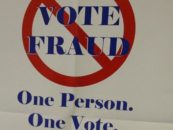So far, infected emails have been acting like they are from Home Depot, Target, Walmart and Costco. They began around Thanksgiving, and with the holiday rush, scammers are trying capitalize on the craziness of the season.
RELATED: Backoff Malware Breach Continues
These fake confirmation emails will generally tell you there was an issue with your order. The subject lines have been along the lines of: Acknowledgment of Order,” “Order Confirmation,” “Order Status,” “Thank you for buying from [insert merchant name here]”, and a “Thank you for your order,” according to Brian Krebs.
The emails also encourage you to clink on links within the email. Don’t fall for it! The links contain malware that will steal your personal and valuable information.
If you get an email about a legitimate order you placed online, it’s still a good idea to visit the merchant site directly. Don’t give out any personal information, and don’t forget the telltale signs of a fake email.
For these emails in particular, their grammar isn’t great, “From” lines don’t necessarily match the name of the merchant, there are multiple recipients in the “To” line, and when you hover over the links, they don’t go directly to the retailer sites.
More importantly, these emails don’t include order confirmation numbers or any other information regarding the items purchased. Legitimate emails will contain information of that nature.
RELATED: Fake Target Email – How to Avoid Being Scammed, Again
Here’s what some of the fake emails circulating look like:








